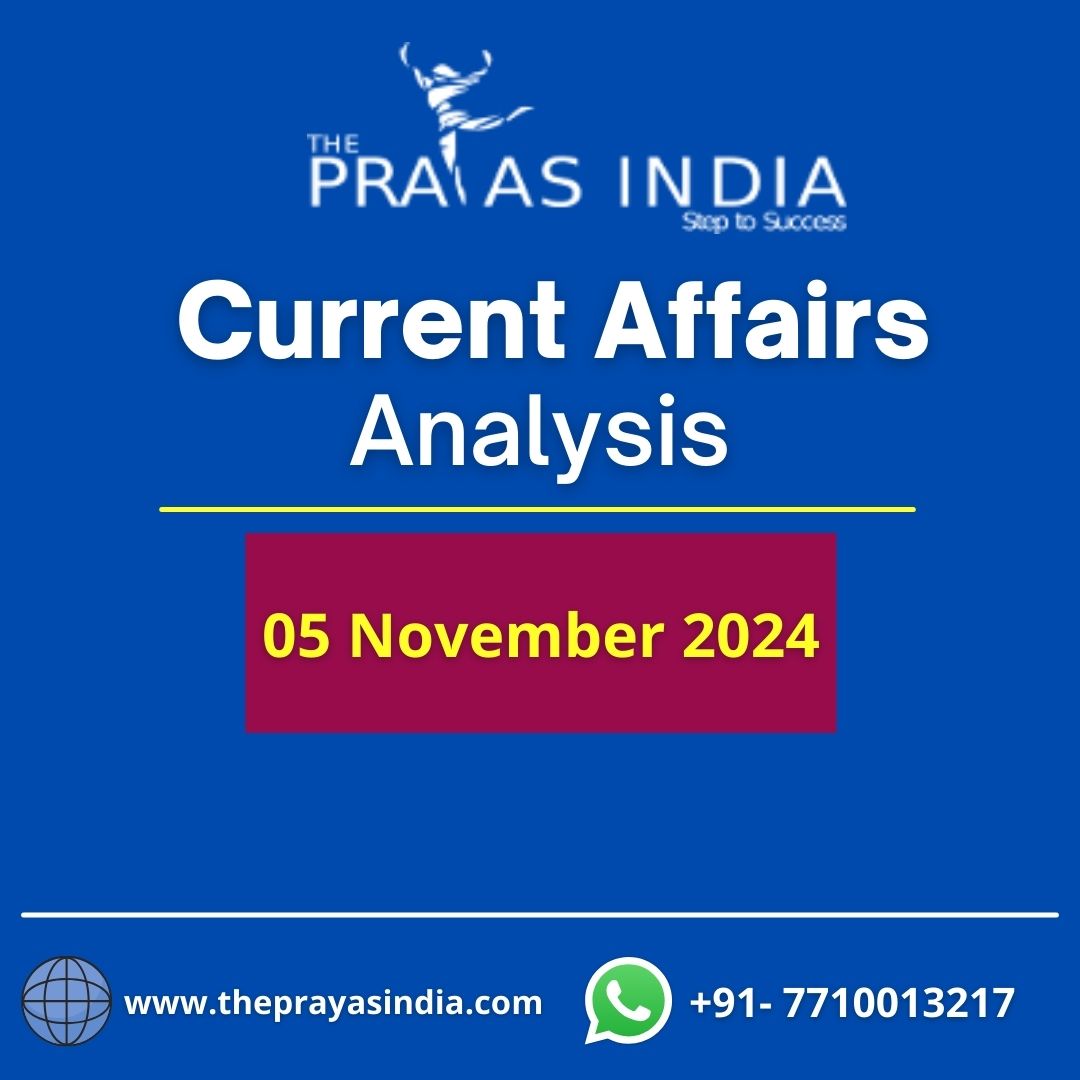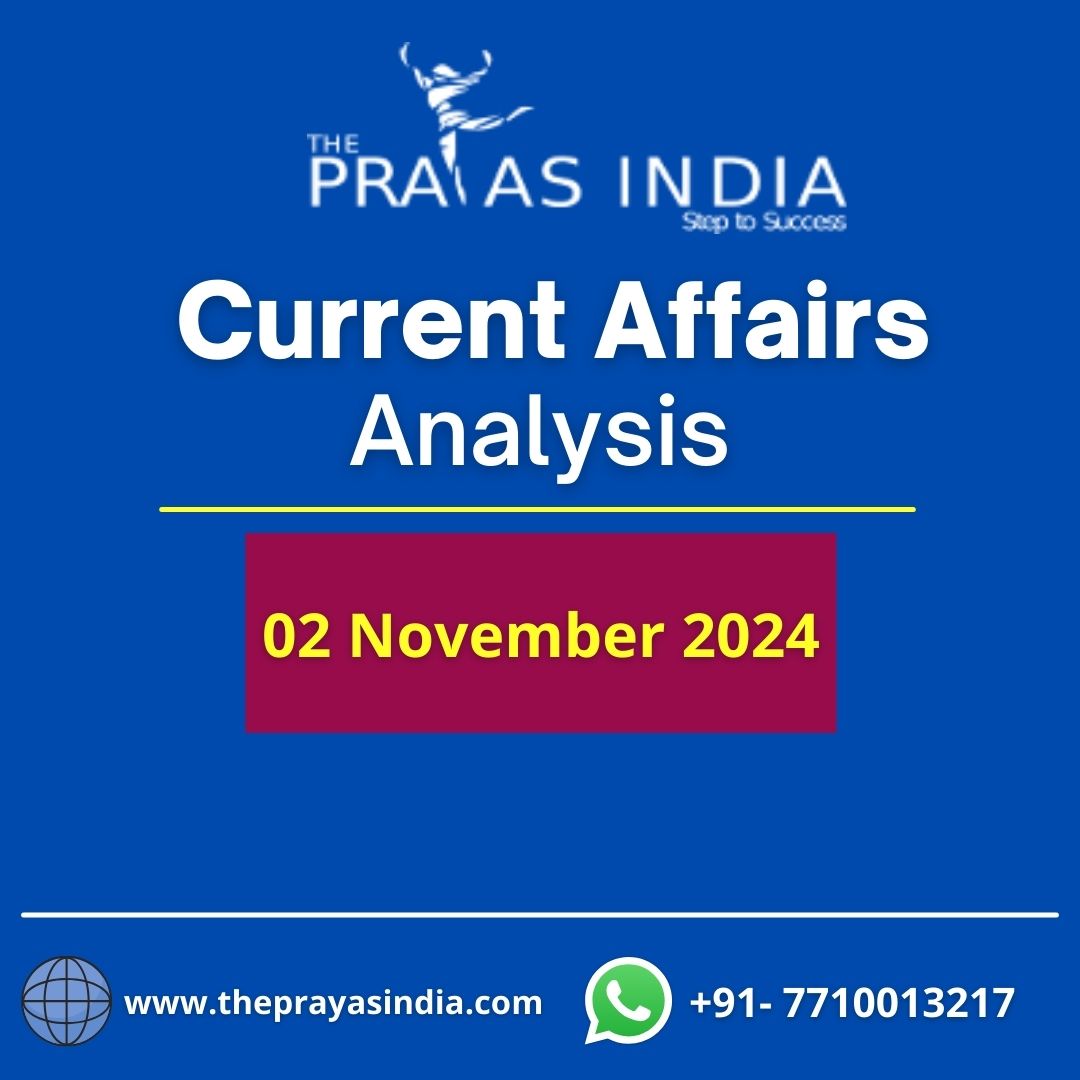DAILY CURRENT AFFAIRS ANALYSIS
1 – About Nobel Prize in Economics, 2023: GS III – Economy/Awards and Recognitions
Context:
- Harvard University professor Claudia Goldin was given the 2023 Nobel Prize in Economics for her contributions to the field’s knowledge of women’s labour market results.
Important information:
- Women’s engagement in the labour market during the past 200 years has been clarified by Goldin’s groundbreaking research.
- In addition, she discussed why, in high-income nations, many women are probably better educated than males, which contributes to the pay gap between men and women continuing to widen.
- Despite the US being the focus of her research, many other nations can benefit from her results.
Main conclusions:
- Goldin used historical data to show that, prior to industrialization, a greater proportion of women were probably employed in cottage industries and agriculture-related fields.
- As industrialization increased, factories became the primary places of employment, making it more difficult for women to leave their homes and commute to work.
- With the expansion of the services sector in the early 20th century, this trend was reversed.
The constraints of matrimony:
- According to Goldin’s research, by the turn of the 20th century, just 5% of women were married, compared to about 20% of women who worked for a living.
- According to Goldin, laws referred to as “marriage bars” frequently prohibited married women from pursuing careers as office or school teachers.
- Goldin also showed that women’s ambitions for their future professions were a significant contributing element in the gradual closing of the employment gap between men and women.
- Because women’s expectations were shaped by their mothers’ experiences, they did not make decisions about their schooling or careers with the hope of leading long, fulfilling lives.
Pill contraceptives:
- By the end of the 1960s, women could plan their careers and parenting and have more control over childbearing thanks to the widespread use of simple contraceptive tablets.
- Beyond the services industry, women also pursued studies in fields including economics, law, and medicine.
- Women were now catching up in terms of education and career opportunities.
- But there was one stark disparity that persisted and still does: the gender-based pay divide.
Parenthood and the pay gap:
- The pay disparity was not too great until men and women worked in factories, where wages were determined by the countable output of the day.
- When monthly pay contracts entered the scene, it grew wider.
- Childbirth was one factor that greatly affected the difference in pay between men and women.
- They were also penalised for this at work, with a delayed pay grade advancement, once a child was born.
About the Economics Nobel:
- Alfred Nobel did not include an Economics Nobel Prize in his 1895 will that established the other prizes.
- The award is based on a grant that Sweden’s central bank, Sveriges Riksbank, made to the Nobel Foundation in 1968 in honour of the institution’s 300th anniversary.
- The Sveriges Riksbank Prize in Economic Sciences in Honour of Alfred Nobel is the official name of the award.
- Goldin is the third woman to receive this distinction.
- Oliver E. Williamson and Elinor Ostrom were awarded the same title in 2009.
- Together with Michael Kremer and Abhijit Banerjee, Esther Duflo shared it in 2019.
Source The Hindu
2 – About Adi Mahotsav: GS I – Indian Culture
Context:
- The Minister of Union Tribal Affairs opens the “Aadi Mahotsav,” a National Tribal Festival, in Jamshedpur, Jharkhand
About “Aadi Mahotsav”:
- The Ministry of Tribal Affairs’ Tribal Cooperative Marketing Development Federation Limited (TRIFED) is in charge of organising the yearly “Aadi Mahotsav.”
- It pays homage to the traditional art, trade, food, crafts, and tribal culture.
- This is a nationwide tribal celebration honouring the goods, customs, and legacy of Indian tribes.
About TRIFED:
- It is an upper body at the federal level that reports to the Ministry of Tribal Affairs.
- It provides services to indigenous groups so they can efficiently market their goods.
- It seeks to provide indigenous people with the information, resources, and instruments they need to organise their activities more efficiently.
- Additionally, it seeks to advance the socioeconomic advancement of indigenous people through the commercialization of indigenous goods such as metalwork, weaving, ceramics, paintings, and more.
Source The Hindu
3 – Opinion of Gandhiji on creation of Jewish state in Palestine: GS II – International Issues
Why in news:
- In light of the most recent conflict in Israel and Palestine’s history, we consider what Mahatma Gandhi had to say about this “very difficult question.”
Gandhi expressed compassion for the Jewish people:
- The Mahatma was always quite clear in expressing his profound sympathy for the Jewish people, who had suffered unfairly throughout history due to their religious beliefs.
- He also said that there doesn’t seem to be another instance in history of the German persecution of Jews.
- He voiced his disapproval of Britain’s strategy at the time (before to the outbreak of World War II) to appease Adolph Hitler.
- The Mahatma claimed that even a war with Germany would be entirely appropriate for the sake of humanity and to stop the oppression of the Jewish people.
Support for establishing a Zionist state in Palestine:
- He declared that forcing Jews onto Arabs is unethical and cruel.
- Reducing the proud Arabs to a lower status in order to partially or completely return Palestine to the Jewish people as their national homeland would be a crime against humanity.
- He had two main objections to the establishment of a Zionist state in Palestine.
- First, Jews were intentionally settled in Palestine, where Arab Palestinians previously lived, and the Jewish settlement was inherently violent, something that Britain actively encouraged.
- Second, Gandhi believed that the concept of a Jewish homeland was inherently incompatible with their struggle for international recognition of their rights.
India’s foreign policy was impacted by Gandhi’s views on Israel:
- The Mahatma’s standing was by no means exceptional.
- Prominent Arab leaders and anti-imperialists worldwide were horrified by Britain’s handling of Palestine and the 1917 Balfour Declaration, which assured Jews of a homeland within the British Mandate.
- Jawaharlal Nehru, the first Prime Minister of India, was greatly influenced by Gandhi’s views and personal anti-imperialism, which helped to shape the nation’s foreign policy for many years.
- Nehru inherited this viewpoint from Mahatma Gandhi in many respects.
- India abstained from voting in favour of UN Resolution 181, which divided Palestine between Arabs and Jews.
- Although it acknowledged Israel as a state in 1950, formal diplomatic ties were not established until 1992, during the tenure of Prime Minister P V Narasimha Rao.
Source The Hindu
4 – About Bima Vahak Yojna: GS II – Government Policies and Interventions
Context:
- To improve insurance inclusion with an emphasis on rural areas, the Insurance Regulatory and Development Authority of India (IRDAI) released rules on Bima Vahaks, the women-centric, specialised distribution channel.
Regarding Bima Vahak:
- The IRDAI has another plan called Bima Vahak that would aid in reaching the last mile.
- A “Bima Vahak” would be assigned to each Gramme Panchayat, whose job it would be to market and provide basic parametric bundled insurance products.
- Bima Vahak wants to establish a distribution channel for insurance targeted at women.
- In India’s rural areas, the programme is probably going to increase trust and raise understanding of insurance goods.
About IRDAI:
- The management and regulation of the insurance and re-insurance business in India is the purview of the independent, statutory Insurance Regulatory and Development Authority of India (Irdai).
- Irdai is a group of ten people.
- five people working full-time and
- Four employees, part-time.
- It was established in 1999 by a parliamentary act.
- Head office is in Hyderabad.
Functions:
- It must safeguard the rights of insurance policyholders and guarantee that they receive fair treatment.
- It must also keep an eye on those who produce policies to make sure the interests of the average person are not compromised.
Source The Hindu




